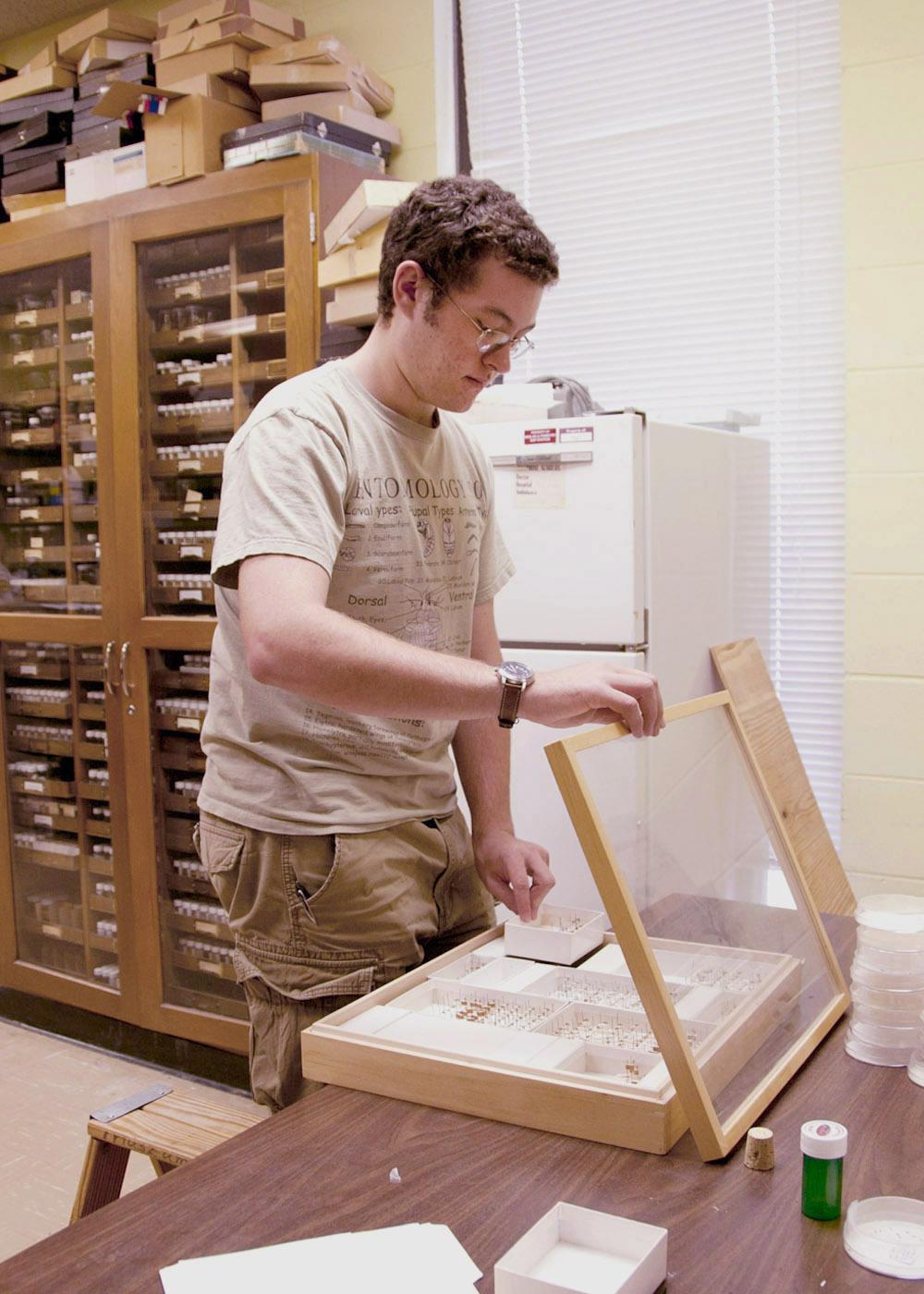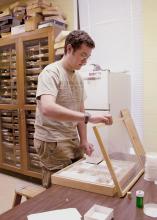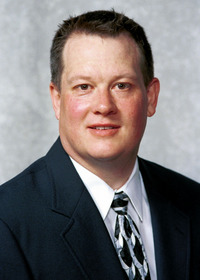Information Possibly Outdated
The information presented on this page was originally released on June 14, 2012. It may not be outdated, but please search our site for more current information. If you plan to quote or reference this information in a publication, please check with the Extension specialist or author before proceeding.
Hobby leads student to mosquito discovery
MISSISSIPPI STATE – Bugs provoke shudders or shrieks from most people, but Matthew Thorn seeks them out.
Two years ago, Thorn’s hobby led him to discover the Japanese Rock Pool Mosquito in Mississippi. The mosquito had never before been reported in the state. He collected the insect in its larva stage in Itawamba County. After the adult emerged, he identified it and was shocked by his findings.
“At first I thought, ‘This can’t be right. I must have made a mistake,’” said Thorn, then a recent high school graduate. “So I contacted Wendy Varnado at the Mississippi State Department of Health, and she confirmed I was right.
“It is difficult to tell the difference between this mosquito and other mosquitos in their larval stages,” Thorn said. “The adult is a little larger than many mosquitos in Mississippi and has some distinguishing silver markings, but even a scientist needs a microscope to tell the difference.”
Thorn said the mosquito is found in its native Japan in rock crevices filled with water. It is believed to have entered the United States in 1998 in New Jersey and has been spreading slowly throughout the country.
Thorn, who dabbled in collecting insects since middle school, at one point wanted to be a medical doctor. But attending Mississippi State University’s Bug Camp for the past four years and interacting with the staff at MSU’s Mississippi Entomological Museum changed all that.
“The first bug collection I did was for a class project in middle school,” Thorn said. “I thought it was interesting, but I didn’t pursue it much after that. Then I went to Bug Camp, and it radically changed the way I viewed entomology.”
The camp also awakened his desire for an entomology career.
“There is so much diversity in the field of entomology,” said Thorn, who plans to enroll in MSU in 2013. “There are so many different ways to use the knowledge gained studying insects. It’s very exciting.”
Currently a sophomore at Itawamba Community College, Thorn is passionate about the field of entomology.
“Matthew has a tremendous enthusiasm for entomology,” said Richard Brown, director of the Mississippi Entomological Museum at MSU, where Thorn is working this summer. “Insect taxonomy is something only a very few people have the desire and tools to study. It is an innate talent that certain people are born with.”
Thorn will return to Bug Camp this year as a helper.
“I hope that I can help to instill in the campers knowledge about insects and help them develop their own passion for insects,” he said. “Bug Camp isn’t just about learning to collect and display insects. It goes much deeper than that.”
Thorn’s own appetite for entomology is being fed at the entomological museum, where he is responsible for sorting through hundreds of exotic insect species, separating them into family groups and flagging possible threats to agriculture and natural resources for further expert study. The insects were submitted from trap samples in Mississippi, Alabama and Kentucky.
“Entomology has many disciplines and involves both physiology and pest management and others,” said Brown, who is also an entomology professor in the Biochemistry, Molecular Biology, Entomology and Plant Pathology department at MSU. “The study of entomology involves much more than how to kill insects. The field requires a desire to truly understand them and how they fit into our environment. I see that desire in Matthew, and I know he has great potential for a career in entomology.”









